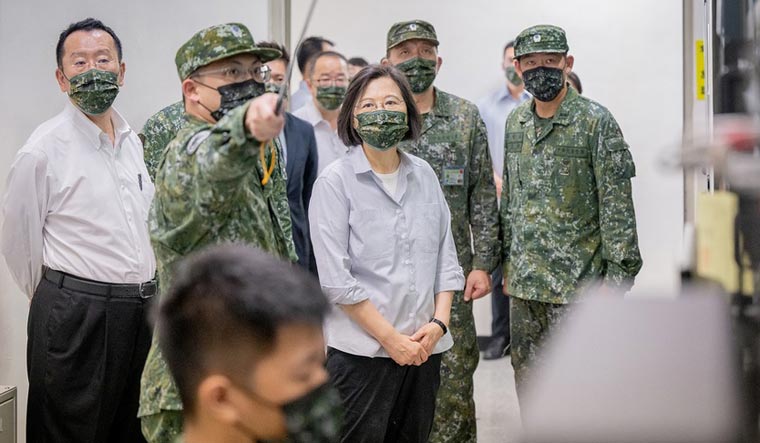The world is holding its breath watching Taipei, one of Asia's most exciting destinations, facing a heightened military threat from China which wants unification with Taiwan, viewing it as part of its territory. As China flew missiles over Taiwan Strait, and SU-30 multi-role fighters and PLAN warships dominated the waters around the island, Xi Jinping made it clear that he can use “force or other necessary means if resisted”.
But inside Taiwan, officially known as Republic of China, being governed independently of China since 1949, not only is the society moving about their daily business normally, but the seat of democracy, which is the Parliament House or the Legislative Yuan, is functioning freely with pride and the ease of any sovereign nation. As traffic zips past the gates of the Legislative Yuan where the Taiwanese flag swirls high, two security personnel are seen standing aside the gates that are thrown open for members. On a busy day, there are 113 Members of Parliament coming in and out, and the hustle and bustle of activity keeps more security personnel busy. But at the moment the session is closed and will reopen only in September. There are no guns, rifles, boots, or sirens, but the periphery of the island has these and much more.
This time, the Parliament session will be important. All eyes are on President Tsai Ing-wen who seems to have drawn the ire of China single-handedly by inviting and hosting US House Speaker Nancy Pelosi on August 4. While Tsai and her policies towards the United States seem to have provoked China, creating unprecedented cross-strait tensions, the fact that the clouds of war are only flying by and Taipei and its Legislative Yuan is safe and secure post Pelosi visit is also expected to be projected by Tsai’s Democratic Progressive Party as a feather in its cap.
It is true that Taiwan and its democratic systems are safe. However, behind the peaceful existence lies a deep and worrying analysis by military generals—special units of Taiwanese army sitting across Taiwan and keeping a 24/7 vigil on its islands like Kinmen, Dongyin and Matsu—who are burning the midnight oil trying to decode China's strategy and war games.
The Chinese military assault is unprecedented as it is a three-pronged strategy, defence strategists in Taiwan told THE WEEK. Firstly, the Chinese PlAAF flew its aircraft that resulted in the Air Defence Identification Zone incursions, which has normally been a routine violation of the area for years now as this area is legally not demarcated and extends beyond the country's airspace where air traffic controllers ask for incoming aircraft to identify themselves. These violations have become routine of late, the frequency going up and down, depending on whether the Chinese detect a foreign vessel or Beijing feels the need to monitor the sea and territory, collect information or pick up intelligence or even when the CCP wants a projection of its prowess.
But these violations have coincided with the joint forces exercise launched by the PLA this time which lasted for over a week after Pelosi's visit. The joint exercises spell danger, experts said as it included realistic combat exercises, joint alert patrol testing its capabilities and drawing out Taiwanese jets and ships even giving rise to speculation of a blockade scenario in a real time war. “In these exercises , the PLA has rehearsed blocking Taiwan so it is not only the air incursions but the overseas shipping we must worry about,” said Dr Ying-yu Lin, assistant professor at the graduate Institute of International Affairs and Strategic Studies at Tamakang University in Taiwan. “Even though are capabilities are better than 26 years ago, we have to watch their strategy to take care of Taiwan’s securit,” he said.
And this is exactly what strategists in Taiwan are doing. They are mapping out the threats in a threadbare manner.
Thirdly and lastly, the military analysis shows that the median line violations are the most worrisome part for the Taiwanese defence forces as vessels intrusion of the kind witnessed this time is the first in 70 years. This time the median line was breached several times in the north and south, trying to create a new normal and putting a huge stress on the military resources of the island country which has not overspent on its defence budget in the last many decades. This is one area that is presently drawing Tsai’s attention. The Legislative Yuan will have to urgently factor this in because any stress on the defence forces, even if its preparatory military drills to threaten Taiwanese, can create a situation where they get exhausted, a scenario Taiwan can ill afford in its fourth cross Strait crisis.





